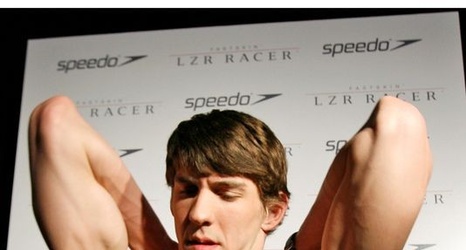NEW YORK (AP) — When seconds count, the right clothing matters.
For the Rio Olympics, Nike used 3-D printing technology to develop small silicone protrusions for redirecting air flow around the runner. Body scanners helped Adidas design suits to keep swimmers in ideal form. Swiss cycling specialist Assos turned to wind tunnels to craft custom, form-fitting suits for the U.S. cycling team.
Innovations in suits and shoes have sped up, thanks to advancements in how clothing is designed and tested — all as manufacturers get creative in working around rules enacted to prevent the apparel equivalent of doping.
